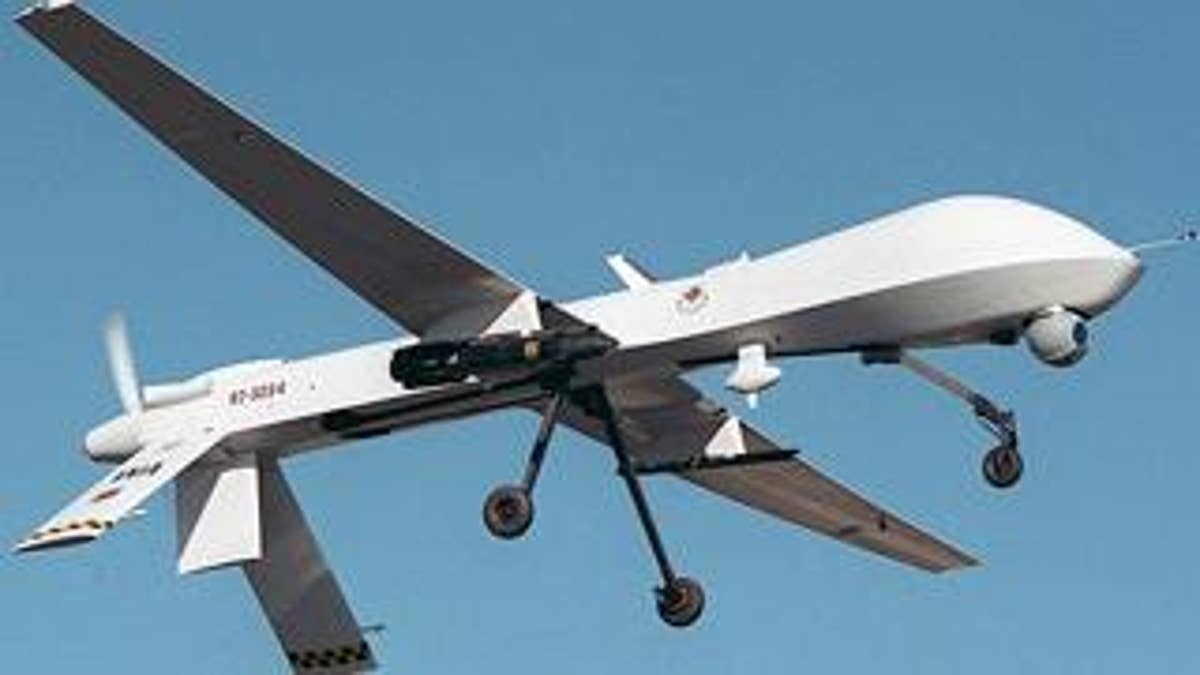
As the Obama administration considers relying more heavily on remote-controlled drones to attack militants along the Afghanistan-Pakistan border, there are increasing concerns that the military will risk losing the hearts and minds of civilians along the way.
The civilian casualties resulting from the use of unmanned Predator aircraft have long been a subject of fierce criticism, particularly from local governments and from the media in Pakistan. But the Taliban and other militants have also used them to rally support for their attacks and drive up popular outrage and distrust against Pakistan's government and Western forces.
"It's a delicate balance, without question," said Rep. Adam Smith, D-Wash., who sits on the House Armed Services Committee.
While the drones have killed a number of top terrorist targets -- most recently Pakistani Taliban leader Baitullah Mehsud -- some worry that an over-reliance on the air strikes will steadily alienate the population and hand devastating propaganda victories to the enemy. The civilian casualties, combined with the lack of a substantive U.S. presence on the ground in Pakistan, make it hard to compete with the Taliban media operation.
Gen. Stanley McChrystal, the top U.S. commander in Afghanistan, where such strikes are far less common, seemed to hint at this in his August assessment of the war. McChrystal has argued for a troop-heavy counterinsurgency strategy to build an alliance with the population.
"Pre-occupied with protection of our own forces, we have operated in a manner that distances us -- physically and psychologically -- from the people we seek to protect," he wrote. "In addition, we run the risk of strategic defeat by pursuing tactical wins that cause civilian casualties or unnecessary collateral damage. The insurgents cannot defeat us militarily; but we can defeat ourselves."
David Kilcullen, one of the architects of Gen. David Petraeus' counterinsurgency strategy in Iraq, was so concerned about popular backlash that he told a House committee in April that the drone program should be ended.
Far from it, the program has been expanded.
The drones, which allow U.S. forces to take out sought-after targets from remote locations thousands of miles away, are considered a priceless tool -- in May, CIA Director Leon Panetta called them the "the only game in town" for going after Al Qaeda's leadership.
A new study from the New America Foundation found that with 41 drone strikes under his watch in Pakistan, President Obama has "dramatically increased" the number of drone attacks. Various estimates show these attacks have taken out more than a dozen top terrorist leaders. But the New America Foundation study showed that since 2006, more than 30 percent of the total number killed -- between 750 and 1,000 people -- were civilians. One Pakistani journalist in April put that number at nearly 700.
The New America Foundation report said "militants have used them as an excuse" to hit government targets.
"Drone strikes will remain an important tool to disrupt Al Qaeda and Taliban operations and to kill the leaders of these organizations, but they also consistently kill Pakistani civilians, angering the population and prompting violent acts of revenge from the Pakistani Taliban," the report said.
Bruce Hoffman, a Georgetown University professor who specializes in terrorism and insurgency studies, said the Taliban have flexed their propaganda strength by drawing attention to such collateral damage. He said the drone program should be continued, but only if complemented by a serious "hearts and minds" effort.
"Every Predator strike, even if it just takes out a militant, is always portrayed in the Taliban's propaganda ... as causing untold calamities on innocent women and children," he said. "I think it has a place but we shouldn't be under the impression that we can kill our way to victory with remote-control drones. ... You need to have forces on the ground, whether it's in Pakistan or Afghanistan."
Smith, who supports the drone program, said the hope is that the Pakistani military can eventually take on such high-level militant targets on its own without the aid of U.S. drones, while the emphasis in Afghanistan can be on protecting the population. He acknowledged the obvious "downside" of losing popular support due to civilian casualties.
He said the successful strike on Mehsud in August helped win civilian support in Pakistan.
"They still resent the violation of their sovereignty, but when we hit Mehsud we showed this wasn't just America's war," he said.
According to the New America Foundation report, it took 15 separate drone strikes to wipe out Mehsud. But the Pakistani press did react positively when he finally was killed.
Foxnews.com's Judson Berger contributed to this report.












































